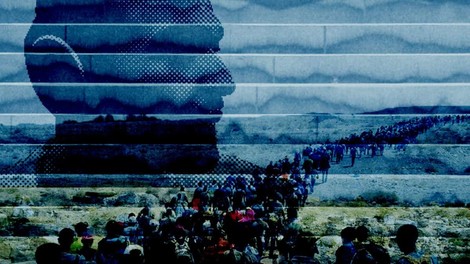Your podcast discovery platform
Curious minds select the most fascinating podcasts from around the world. Discover hand-piqd audio recommendations on your favorite topics.

piqer for: Global finds
Ciku Kimeria is a Kenyan author "Of goats and poisoned oranges" - (https://www.amazon.com/goats-poisoned-oranges-Ciku-Kimeria-ebook/dp/B00HBBWPI6), development consultant, adventurer and travel blogger (www.thekenyanexplorer.com). She writes both fiction and non-fiction focusing on African stories that need telling. She has worked on diverse pieces for various international and local publications including Quartz, Ozy, The East African etc. She has travelled to 45 countries – 16 of them in Africa. 153 countries to go and 63 territories!
"Of goats and poisoned oranges" has been extremely well received in Kenya and beyond. It tells the story of a Kenyan middle aged power couple and their complicated marriage. The novel explores issues of greed, revenge, betrayal and murder. It runs from the 1960s to 2013. It has been described as “Wicked, funny, poignant, wacky, human, a big ball of fun and danger”, “A unique and captivating book”, “Fun and intriguing”, “Impossible to put down once you start reading.”
She recently moved to Dakar, Senegal from Kenya to work on her second novel. She also works at as the Africa Communication Manager at a leading global strategy consulting firm.
She holds a B.S. in Management Science from MIT with minors in Urban Planning and International development studies.
Stories Of The Resilience Of Eritrean Refugees
This gut-wrenching piece follows the journey of several Eritrean refugees as they risk all to get to Europe given the dire economic and political circumstances in their country.
Those who go to Egypt’s Sinai are regularly held by traffickers and kept as hostages in large warehouses. Many are tortured and raped while forced to speak to their families on cell phones to pressure relatives to pay. Some who fail to secure the ransom have had organs—especially kidneys, livers, and corneas—forcefully removed from their bodies to be sold, and then have been left to die in the desert.
Part of the article is told from the perspective of the Eritrean-born Swedish journalist Meron Estefanos, who was one of the first journalists to highlight the Eritrean plight in Western media. She continues to be deeply involved in the story and is directly connected to thousands of refugees whom she has helped and continues to help in their fight for normalcy and their search for a safe place to call home.
The United Nations estimate that approximately 400,000 Eritreans, some 10 percent of the population, have left the country in recent years.
The harrowing accounts of the suffering the Eritreans face on their way to Europe are heartbreaking. Worse still is the knowledge that things must be much worse for them in Eritrea for them to risk having to endure all these torments to get to Europe.
On the road to Libya, the lorry broke down three times. During breaks, in the middle of the desert, the smugglers pulled away three young women and raped them. Rape is common during these trips. Women know this and take birth control pills before the trek. Tesfealem, who was five months pregnant at the time and didn’t know how else to protect herself, had innocently brought along condoms.
Throughout these painful stories one is left inspired by the resilience of people who have gone through so much but keep pushing on. Also along the way there are many acts of kindness from strangers and family to remind us of humanity.
